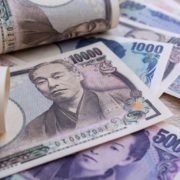
About John Beirne
John Beirne is a principal economist at the Asian Development Bank.Mitigating climate-related sovereign risk to accelerate action on the climate emergency

Governments and financial authorities should implement financial sector policies to scale-up investment in climate adaptation and resilience
Digitalization for enhancing access to finance and inclusive growth

Digital finance enables more affordable and accessible financial services and other credit facilities for underserved and marginalized groups.
Exchange rate transmission to prices in emerging Asia and the role of global shocks

Central banks in emerging Asia have helped to bolster the resilience of their economies to external shocks, but the exchange rate channel remains a key transmission mechanism of disturbances.
ChatGPT and structural change: Proceed with caution

ChatGPT has the potential to lay the foundation for structural change and economywide productivity growth.
Rising corporate market power in Asia threatens monetary policy effectiveness

Market power has been a long-standing concern for many policy makers and academic researchers as it greatly matters for economic welfare and resource allocation.
Mounting debt and capital flow management risks amid a strong US dollar

A tightening United States monetary policy cycle in 2022 in the face of severe inflationary pressures has led to a broad-based appreciation of the US dollar.
Fintech’s pandemic-related boost to financial inclusion, MSME resilience, and women’s empowerment in Asia

Fintech has been instrumental in helping to sustain businesses and households during the COVID-19 pandemic, with scope to be an integral driver of sustainable economic development in the post-pandemic era.
What can the quality of institutions tell us about macrofinancial resilience in Asia?

Asia has made substantial progress on economic development over the past 3 decades, with the quality of institutions playing an important role.
Unconventional monetary policy in Southeast Asia eased market turmoil during COVID-19

Quantitative easing measures in Southeast Asia helped to alleviate pressure on long-term bond yields and support stability in asset markets.
Plunging yen hit by widening interest rate differentials and rising commodity prices

The yen’s safe-haven status has been called into question after sharp depreciations amid rising energy prices and widening global interest rate differentials relative to Japan.


Search
Subscribe / Connect to Asia Pathways
Subjects
- Accelerating Progress in Gender Equality
- Addressing Remaining Poverty and Reducing Inequality
- Agriculture and natural resources
- Capacity development
- Climate change
- Economics
- Education
- Energy
- Environment
- Finance and Innovation
- Finance sector development
- Gender
- Globalization and Economic Stability
- Governance and public sector management
- Health
- Industry and trade
- Information and Communications Technology
- Infrastructure
- Making Cities More Livable
- Miscellaneous
- Population
- Poverty
- Private sector development
- Regional cooperation and integration
- Sanitation
- Social development and protection
- Strengthening Governance and Institutional Capacity
- Subjects
- Transport
- Uncategorized
- Urban development
- Video Blog
- Water
Recent Posts
- From Crisis to Resilience: The Evolution of the Banking Sector in Asia and the Pacific
- Tariffs on the Table: What Could Be Asia’s Next Move?
- Investing in Childcare a Win for Women and the Economy
- Flush and Flourish: Upgraded Toilets Can Transform Lives in Rural Asia
- New Ways for Climate Finance and Development in Asia and the Pacific




Recent Comments